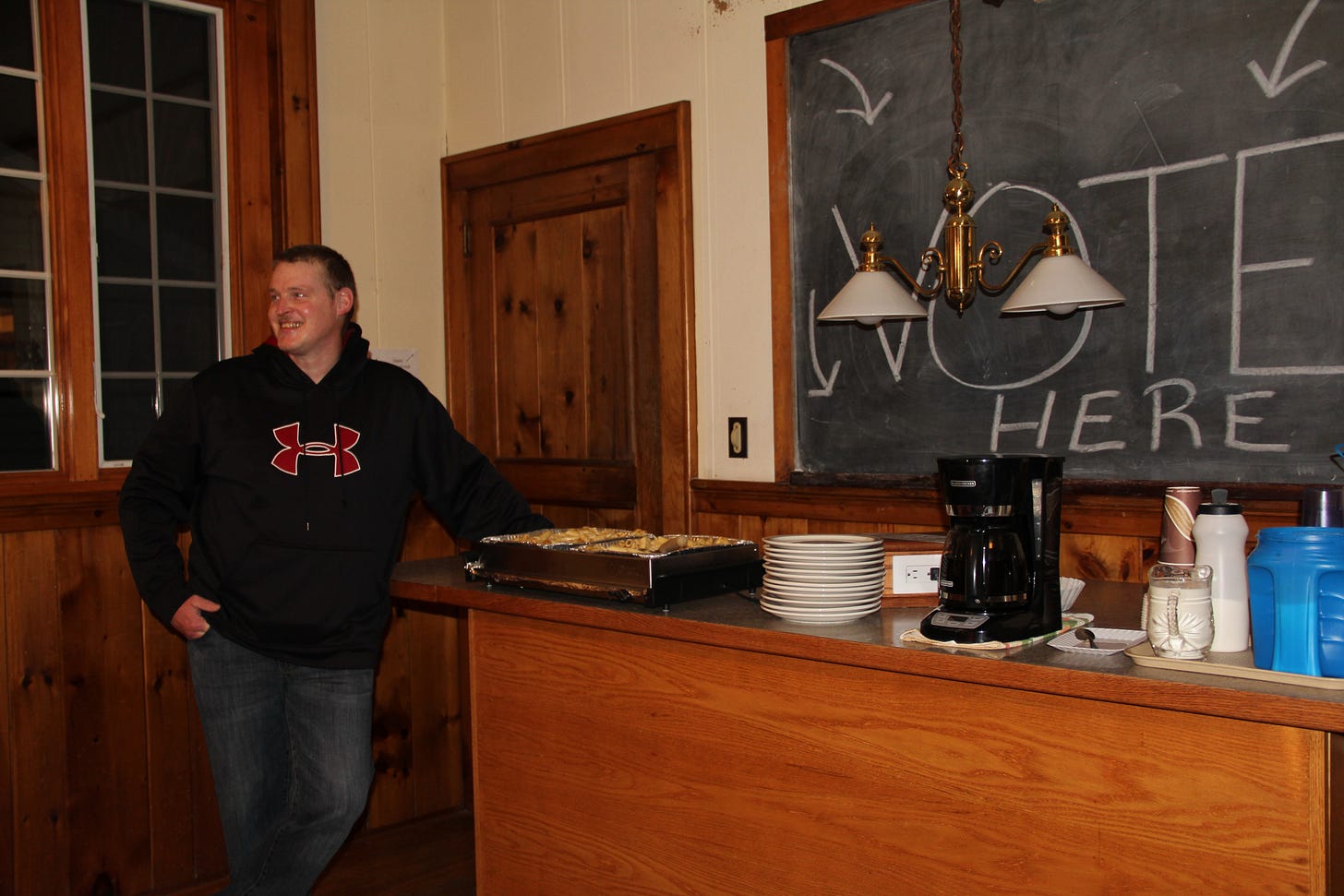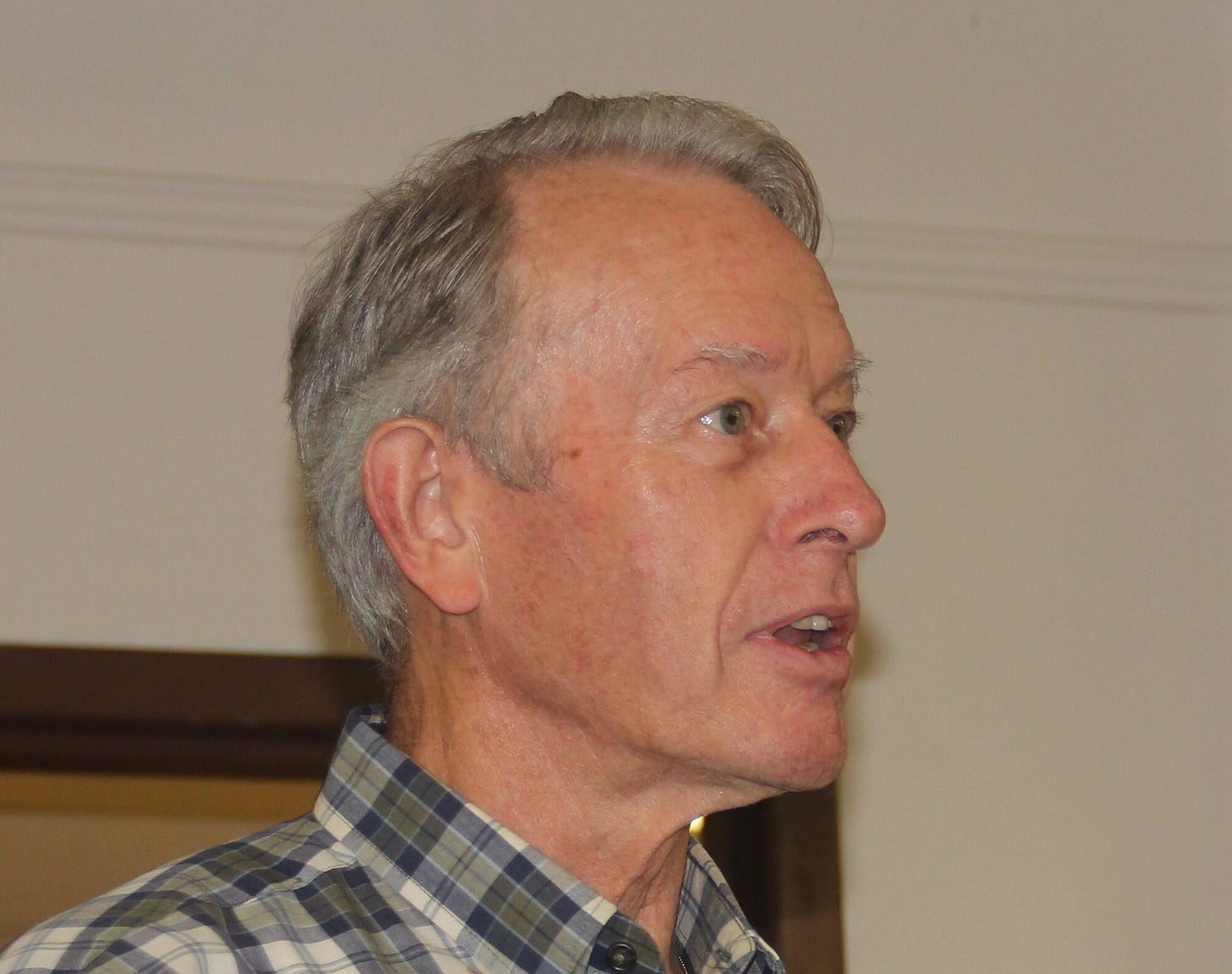Year Round Help Proposed for Port Jervis Homeless
Almost every year, one or two Port Jervis homeless people die over the winter, said Jack Austin, who has volunteered at the Port Jervis Warming Station since it began in 2013. A year ago, the brother of a police officer died, Austin said. Some people are hard to help.
Of the 82 people the warming station served in 2022-23, 43 stayed from one to ten nights; 19 people stayed for 11 to 30 nights; and 19 people, who were chronically homeless, stayed 31 to 99 nights each, Austin reported. One homeless person stayed for over 100 nights.
Austin, with his cohorts at the Tri-State Interfaith Council that operates the warming station, are proposing a “Transitions Program” that would be open year round to assist the chronically homeless with finding paths to stable housing. Having spent many nights assisting such people at PJWS, Austin is familiar with their challenges. Also, in previous decades he was a civil rights activist, a social worker who worked for Child Protective Services for 12 years and, aptly for this venture, a real estate agent.
“They’ve given up and burned out their resources. They have mental health and substance abuse issues. The risk of relapse is high,” he said of the chronically homeless. “The desire is to dangle the carrot of permanent housing in front of them and get them off the street.”
They often live on urban streets like others survive in wilderness, Austin said, adjusting to being dirty and without money.
“They don’t pay for anything,” he said. “They find free services. They’re probably embarrassed to see family and may have lost contact. They’d like to be able to say they’re doing better. I don’t think any like being homeless. Being adaptable doesn’t mean they like it. ”
Two PJWS visitors, left, with volunteer Heather Beebe, right, at Port Jervis Warming Station in December of 2020.
The Transitions Program proposal seeks $414,770 to have the warming station open year round and employ a small staff to connect the homeless with social services and rehabilitation and assist them with plans that lead to stable housing.
The warming station, open from Nov. 15 to March 31, is located at St. Peter’s Lutheran Church on West Main St., and operated by the Tri-State Interfaith Council. The way the warming station currently operates, guests arrive in the evening and are offered dinner and then breakfast in the morning. A shower built for them in the church in 2020 was the gift of someone who had previously stayed at the shelter, which now also has a donated washer and dryer, Austin said.
“Over the past three seasons, PJWS has served an average of 71 people each winter, for a total of 1,287 nightly stays,” according to Austin’s annual report. “A large network of community volunteers donates home-cooked meals, collects and distributes clothing and other basic necessities, and helps staff the shelter, including staying onsite overnight. The small paid staff assists guests in acquiring IDs, applying for government benefits, and accessing health care and treatment programs for substance abuse and mental illness.”
PJWS also collaborates with other community organizations, including the Salvation Army, mental health and substance abuse clinics, Bon Secours Community Hospital, Port Jervis Police Department and others.
The year-round proposal aims for a program that makes use of a similar set of resources and groups—employees, volunteers, social services, mental health and rehab organizations—while also asking for and assisting with commitments from the homeless to pursue skills and treatment that would prepare them for sustained housing.
Participants would be assessed and connected with government assistance, treatment, GED preparation, job skills and life skills. Social service staff would help them make a plan to overcome obstacles to housing, and they would be required to complete their plans for treatment and education, accumulate savings and stay sober for four to six months.
Staff would then help them find appropriate housing, whether supportive or independent. The program would also help with a security deposit and with locating free furnishings.
HONORehg, a Middletown shelter that provides similar services, has sometimes assisted PJWS visitors. Austin has asked for information about their success with the chronically homeless to support the PJWS proposal, of which he is the primary author. No response has yet been provided.
Meanwhile, Austin has approached several elected officials with the proposal. New York State Assemblyman Karl Brabenec (R, C-Deerpark) met with him and was “quite supportive,” Austin said. Brabenec also participated in a phone conversation with State Senator James Skoufis, who offered to contact the New York State Office of Children and Family Services and look into other state resources, Austin said.
Community focused news can only succeed with community support. Please consider the various subscription levels.





